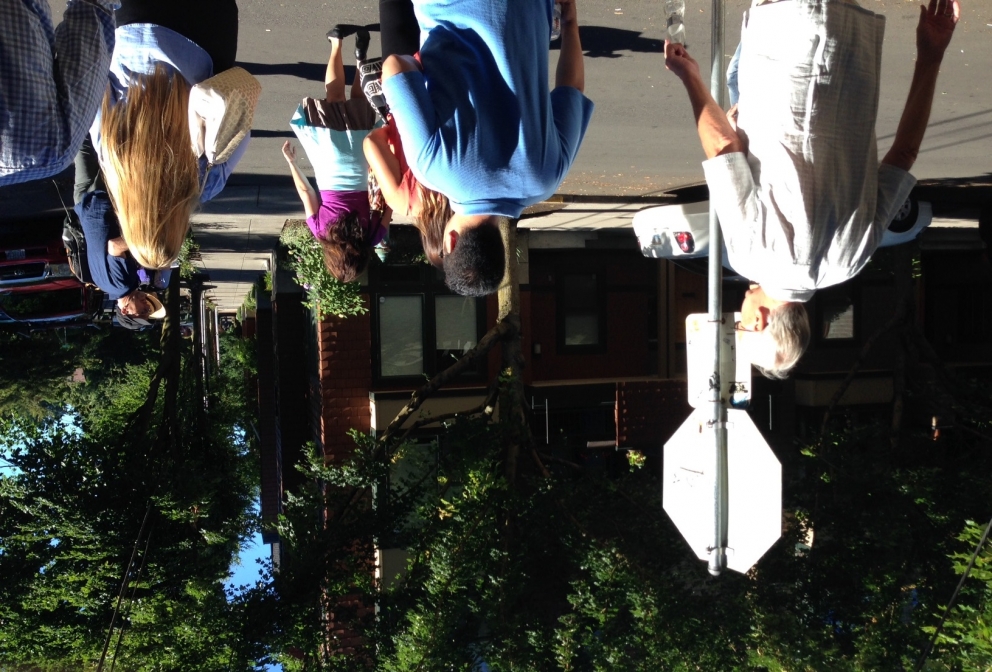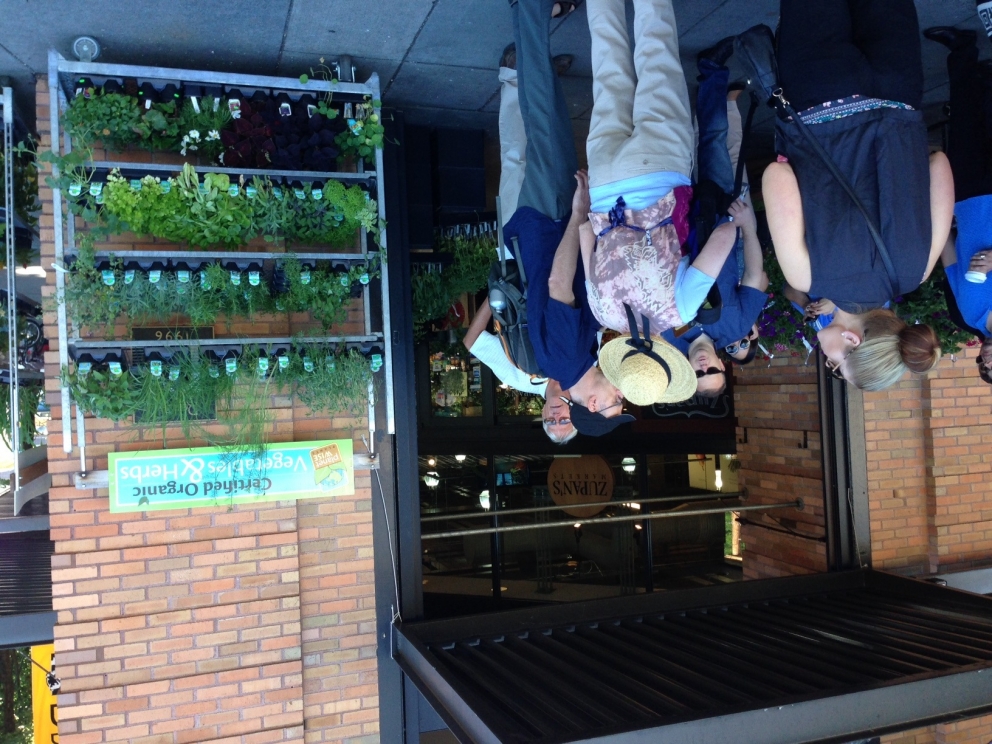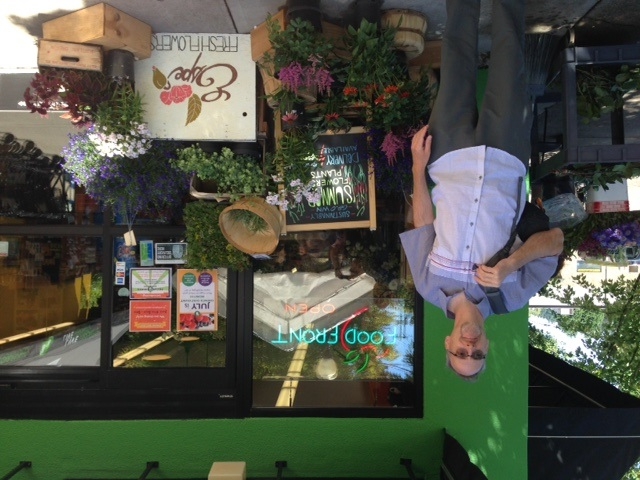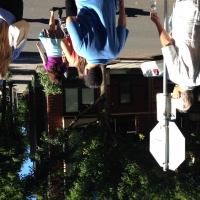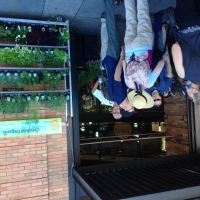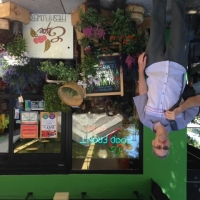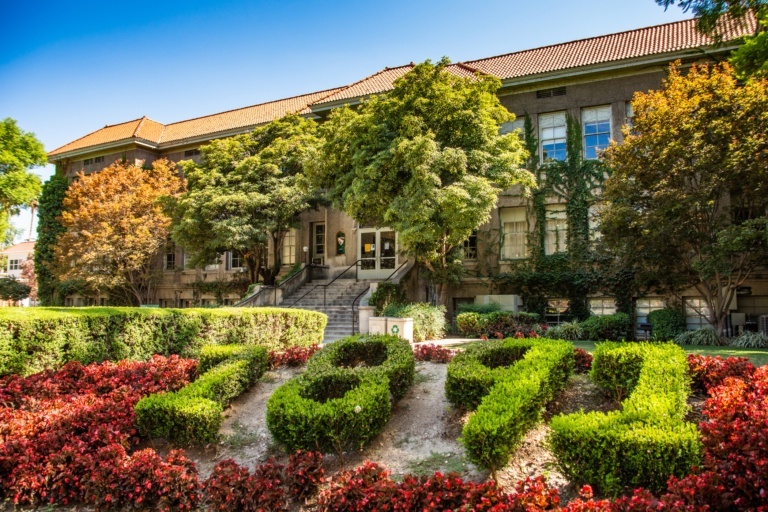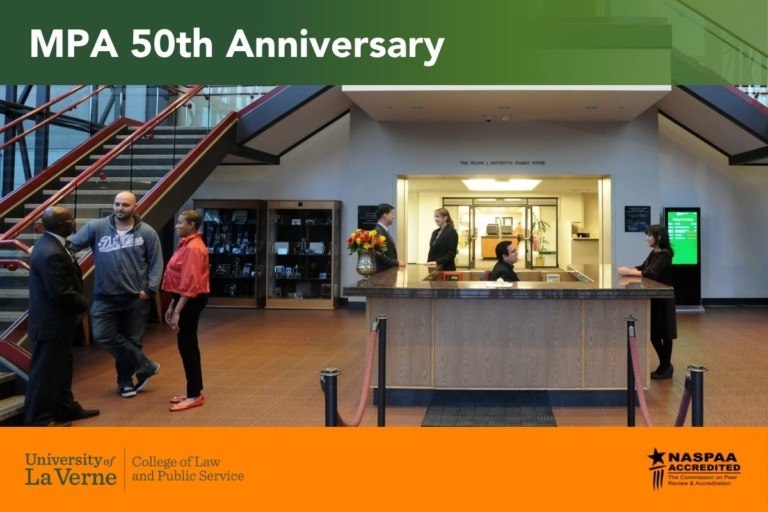La Verne Grad Students Exploring Urban Planning in the Pacific Northwest
When two public administration professors developed a class to show their graduate students a city where sustainability and urban planning practices work well, selecting the location was simple. They chose Portland.
University of La Verne professors Dr. Matthew Witt and Dr. Keith Schildt say the program has been so successful, not only is the class going to take place in Portland again this summer, it may extend to other U.S. cities and even overseas in the future.
“The reviews were quite positive in terms of, among other things, being immersed in an urban environment different from what they were used to in Southern California,” Dr. Witt said.
The Master of Public Administration course, called PADM 581 or Comparative Public Administration, is offered during the summer term. Thirteen students participated in the last course. Portland was selected, in part, because Dr. Witt is a native of the city and he wrote his Ph.D. dissertation on Portland’s Office of Neighborhood Involvement. It is also a great locale for The La Verne Experience, the professors say.
“The immersion of our students into communities different than their own is vital for an integrated and authenticated education,” Dr. Witt said.
The trip acquaints La Verne students with how Portland manages and addresses issues such as food sustainability and access, and exposes them to an urban geography that contrasts Southern California’s urban sprawl.
“Southern California would benefit from understanding urban growth limitations and cultural practices around containing sprawl that Portland has been successful in achieving,” Dr. Witt said.
Students and faculty met with faculty at Portland State University, including an emeritus professor who is an urban historian. They also learned about land use planning issues and long-range planning objectives from city officials, and also residents and activists playing roles in food sustainability and urban planning. They also met with a city food policy coordinator, one of only a handful in North America, Dr. Schildt said.
One of a food policy coordinator’s roles, to enact ways to supply food following a disaster, is something that public administrators in other cities should examine.
“They need to determine the resiliency of a community in the wake of a disaster, whether it’s a hurricane, earthquake or infrastructure collapse,” Dr. Schildt said.
Portland’s influence can already be seen in other cities, such as Los Angeles, which modeled its Department of Neighborhood Empowerment after Portland’s Office of Neighborhood Involvement.
But Witt says Southern California faces challenges in trying to mirror Portland’s ability to provide an abundance of locally-grown produce in markets due to the region’s diminishing arable land.
“This area is almost entirely built out with almost no open land, which is ominous, in a way,” Dr. Witt said.
Some students were initially confused why Portland was selected because it is so different than Southern California, but they eventually developed ideas that could help their own communities based on what they learned. Dr. Schildt called the experience transformational for the group.
“The feedback was almost unanimously positive,” he said.
Mary Kaminski, who took the course along with her husband, Mark, said the class enhanced her understanding and enthusiasm for urban management.
“This type of information cannot be learned from a book, but rather was a rare opportunity to obtain insightful information from public administrators who have vested many years in public service working to improve their community. It was a great experience,” Kaminski said.
And Portland may also gain knowledge through La Verne’s trips.
“There are lessons to be learned from one another,” Dr. Witt said. “Portland has an increasing cultural diversity that still lags behind Southern California.”
The class could continue in other parts of the world. Witt said Chicago and even points abroad have been discussed. Schildt, who is from Chicago, is hoping to make that the summer class destination in 2016 because it has more similarities to Los Angeles.
“Chicago is also very sprawling, but it has more of a defined urban core than Los Angeles does,” Dr. Schildt said.

